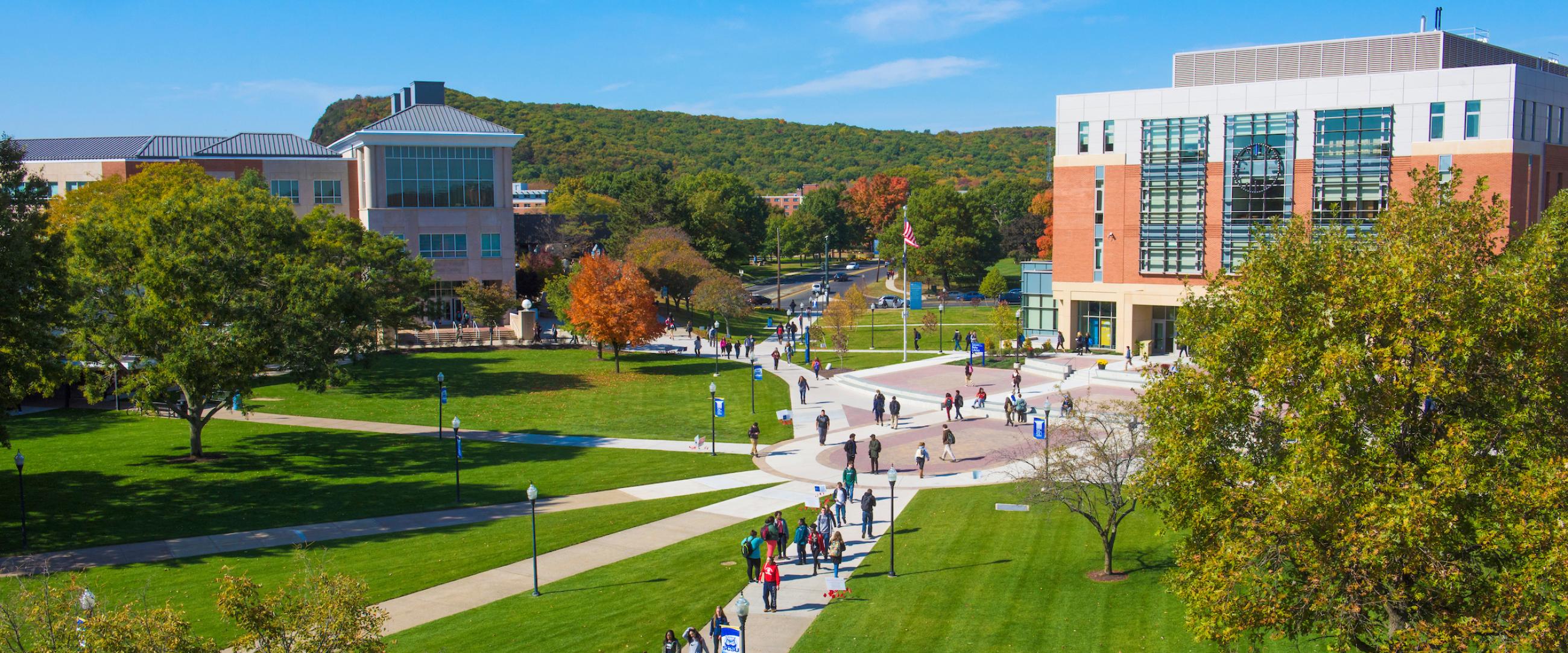The Master of Science in Environmental Studies is a 30-credit program that provides students with advanced courses in research, analytical skills development, GIS, energy and climate change, sustainability and environmental design, and environmental action research. The program is designed for students looking to enhance and further their careers in the environmental and sustainability fields.
Graduate students will be engaged in a wide diversity of courses that include hands-on investigations, field experiences, laboratory environments, intensive seminar-style courses, and research-based courses. Students have the option of following a thesis track or a special project track. The MS in Environmental Studies provides flexibility for students who wish to complete the program either full-time or part-time as well as an array of courses that may be taken as electives e.g. environmental design, social sustainability, environmental action research, and environmental teaching methods.
This program is suitable for students who are looking to enhance their theoretical background in environmental studies whilst also looking to further their skills for moving into the field as a career. The MS in Environmental Studies particularly focuses on the ‘wicked problems’ of the 21st Century (such as climate change and its components) and ways to address environmental, social, and economic challenges.
Our graduate program is ideal for environmental science professionals and for those who wish to advance their careers in the fields of education, policy, and research. This program is open to students with undergraduate preparation in physical and life sciences, education, and social sciences.
Program Features
- Integrated Environmental Science courses focus on ecosystems and environmental concerns, analytics techniques and instrumentation, energy use, and global climate change
- Policy-based courses focus on the economic, political, and legal aspects of environmental concerns
- Education/Methodology based courses focus on environmental teaching methods, curriculum, and materials
- Sustainability-based courses focus on environmental problem-solving, action and research, group dynamics, art, and design
Careers
Graduates of the program are prepared to advance their careers in integrated science, sustainability, and education. Individuals are prepared to pursue positions in:
- Secondary and higher education teaching
- Environmental education specialist
- Curriculum development
- Conservation scientist
- Data and research
Typical Job Titles
- Environmental Scientist
- Conservation Scientist
- Environmental Consultant
- Sustainability Manager
- Climate Change Analyst
- Environmental Health Specialist
- Energy Analyst
- Sustainability Coordinator
- Environmental Policy Analyst
- Ecologist
School / College
College of Arts & Sciences
Department
Environment, Geography, and Marine Sciences
Contact
Dr. Miriah Kelly

